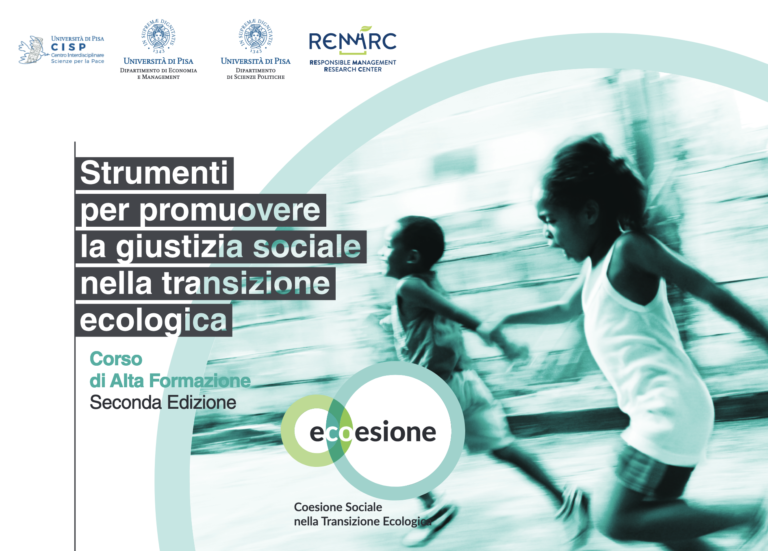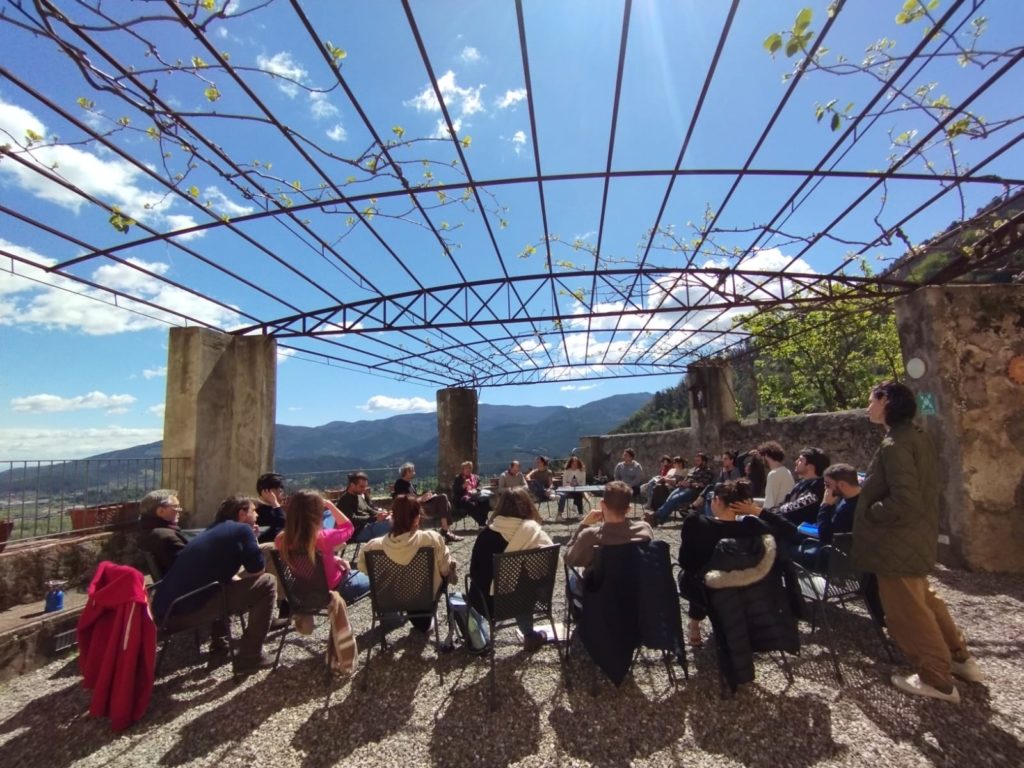
Ecohesion: Toolbox for a just ecological transition
Written by: Tommaso Trinchetti and Letizia Forzoni
The Ecohesion (Social Cohesion in Ecological Transition) project explored the interlinkages between climate and environmental policies, structural changes in the economy, and welfare systems*. Welfare systems have traditionally been based on economic growth. Now, the socio-economic and ecological crisis reveals the limits of the planet and calls for reimagining new policies and forms of governance to integrate environmental and social sustainability. Adopting a multidisciplinary systemic approach, the Ecohesion project aimed to understand the social consequences of climate and environmental policies and provide new insights and tools to facilitate learning and decision-making processes through participatory methodologies. It recognized that the ecological transition is a very complex problem, which requires considering social and environmental issues together with economics, technology, psychology, and culture. The project found that there are no simple, immediate, and linear solutions to the ecological crisis, but the transition is a process to be learned at the same time as it takes place. The project developed several interconnected products: a board game that recreates the complex society-environment dynamics, for all ages; a web macroeconomic simulation toolkit; and an advanced training course for professionals, policymakers, and other stakeholders.

The training course, in its second edition, aimed to provide participants with theoretical and applicative tools to promote social justice in the context of the ecological transition, in the many different sectors it concerns. The course was characterized by theoretical lessons in different fields (e.g., climatology, economics, sociology, political ecology) and in-depth observation of case studies at different scales. It also promoted and supported the development of personal skills in dialogue, mediation, and facilitation methods. One of the analyzed case studies focused on the role of inner areas in the transition. Inner areas can play an important role, as they preserve a vast natural, social, and cultural heritage. However, they suffer from depopulation and a lack of public services, which undermine the capacity of communities to manage the territory. Various policies target inner areas, but linking and integrating environmental, economic, and social dimensions is still a major challenge. In some inner areas of Tuscany, recently, some initial experiences of market-based systems of payment for ecosystem services (PES) generated by forests have been developed. They finance sustainable and responsible forest management with the ambition of bringing both environmental benefits, new income opportunities, and positive impacts on local economies.

A comparative analysis of four experiences of PES systems in Tuscany, some of which are still at a very early stage of development, was conducted with the aim of investigating what role PES can play in the context of the ecological transition**. The information was collected through eight semi-structured interviews with forestry technicians, a politician, citizens, representatives of associations, and regional officers. In most of the observed experiences, the motivations that led to the introduction of PES were mainly economic (“profitability from forest management”) and environmental (“stewardship of the territory”). At the same time, the analysis of these experiences shows that starting from shared environmental and economic objectives, along the way actors find the need to develop new social relations and forms of community policy. The results confirm the need to find tools and instruments to overcome the compartmentalization of policies. Also, even if it requires more resources and delayed time, the involvement and participation of all public and private actors can be an advantage for all. Finally, the results show that, in the case of forest management, a collective commitment to increase the generation of natural goods and services can also become instrumental to new ways of being a community and increasing the relational common goods of the territory, through relationships of mutual learning between the actors involved.
*The project, funded by the Italian Ministry for the Environment as part of the National Sustainable Development Strategy, was led by researchers from the Departments of Economics and Management, Political Science, and Computer Science, and the Interdisciplinary Centre for Peace Sciences of the University of Pisa, in the period 2020-2023 (link).
**The analysis was carried out by Tommaso Trinchetti, Martina Tomeo, Caterina Bracchi, and Letizia Forzoni.

